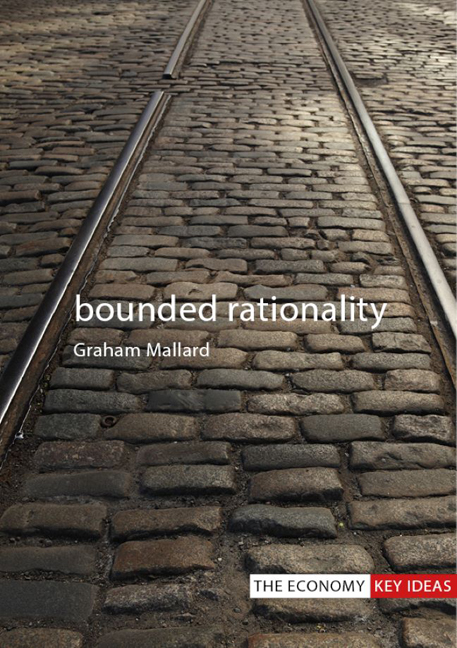2 - A brief history of bounded rationality
Published online by Cambridge University Press: 20 December 2023
Summary
The history of bounded rationality as a concept and approach to studying economic behaviour, which is briefly discussed in this chapter, is one of vehement rejection before growing recognition and a widening and deepening of interest. It starts with the marginal revolution of the 1870s.
The marginal revolution
The early modern economists, also known as the classical economists, were interested in understanding the ways in which our societies function, including the laws that govern them, the pressures that cause them to evolve over time and their likely eventual outcomes. They adopted the approach of studying the logical outcomes of both our individual behaviours and the relationships that exist between different people within our societies. This led Adam Smith to show that our self-regarding behaviours actually promote the interests of society as a whole; Thomas Malthus to demonstrate that our propensity to reproduce whenever we are healthy enough to do so forever consigns us to living in the most impoverished state; and Karl Marx to assert that exploitation of the working class by capitalists will inevitably result in our economic system being overthrown. It is perhaps no wonder the subject became known as the dismal science.
By the 1870s, dissatisfaction with this analysis was rising along with a desire amongst economic thinkers to establish a much more rigorous analytical foundation for the discipline. The development of such a foundation began in the works of William Stanley Jevons, Carl Menger and Léon Walras in what is now known as the marginal revolution, with the concept of the margin (simply the smallest single unit) being at the heart of their work. This concept opened the door to the model of complete rationality as it enabled economic thinkers to identify the optimal solution to any given problem.
To see this, consider again the individual in the previous chapter who's deciding how many bottles of wine and wedges of cheese to buy for a social gathering, but this time consider how much she should drink on the evening her friends come round. Having a glass of wine can undoubtedly heighten her enjoyment of the evening, perhaps helping her to relax and let go of the stresses of the day, but drinking is subject to the law of diminishing marginal utility illustrated in Figure 1.1. The first glass brings her the greatest additional utility, with the second bringing somewhat less and the third bringing less again.
- Type
- Chapter
- Information
- Bounded Rationality , pp. 21 - 30Publisher: Agenda PublishingPrint publication year: 2020

